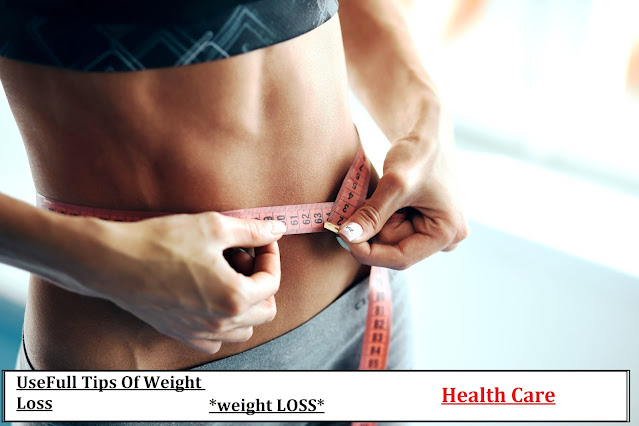Exactly how do I lose weight? some practical advice, and be fit.
Exactly how do I lose weight? some practical advice, and be fit The majority of people are thought to be safe with weekly weight loss goals of 1-2 pounds. Cutting carbs, increasing protein intake, lifting weights, and getting more rest are all strategies that can help people lose weight in a healthy way.
If your doctor suggests it, there are ways to reduce
weight safely even if it is not always the best solution for health issues. For
the best long-term weight control, it is advised to lose 1 to 2 pounds
consistently every week.
Having said that, many diets intended to aid in
weight loss are unsustainable and can leave you feeling hungry or unsatisfied
or cut out important food categories. These are the main factors that may make
it difficult for bariatric surgery
you to maintain a better eating regimen.
Everyone has various demands, therefore you could
respond better to certain dietary habits and advice than someone else.
There are certain fundamental guidelines that apply
when you're attempting to lose weight, regardless of whether you find that a
low-carb diet or a diet that emphasises whole foods helps you achieve your
weight loss goals.
Here are several weight-loss strategies supported by
science that emphasise sensible carbohydrate selection and healthy eating.
decrease your appetite and hunger levels while
keeping you full lead to sustained weight reduction and simultaneously enhance
your metabolic health.
Three Simple Steps for
Weight Loss
Cut back on refined carbohydrates
Reducing your intake of sugars and carbohydrates is one way to help you lose weight quickly. This may be accomplished through a low-carb diet or by increasing the consumption of whole grains while cutting back on refined carbohydrates.
You generally eat fewer calories as a result of weight loss tips doing that because your hunger levels decrease.
You'll use your body's stored fat as energy while following a low-carb diet rather than using carbs.
If you elect to take more complex carbs, such as whole grains, along with a calorie deficit, you'll benefit from higher fibre and slower digestion. They fill up more lose weight fast as a consequence, keeping you fuller for longer.
A extremely low carbohydrate diet helped an older people lose weight, according to a 2020 study.
Low-carbohydrate diets may also reduce appetite, causing people to consume naturally less calories without even realising it or noticing they are hungry.
Be aware that further study is still needed to determine how long-term benefits of a poor diet will last. Poor diets can be challenging to follow, which increases the risk of yo-yo dieting and decreases the likelihood of success in maintaining a healthy weight.
It's possible that a poor diet has drawbacks, which can make you choose another approach. Additionally, diets with fewer calories might cause weight loss and are simpler to sustain over time.
A 2019 study found a link between high whole grain intake and reduced body mass index if you choose to replace refined carbohydrates in your diet with whole grains (BMI).
Consume
veggies, fat, and protein.
At every meal, try to incorporate a variety of
foods. Your meals should diet plan for
weight loss contain the following to assist you lose weight and balance
your plate:
·
a source of protein, fat, and veggies
·
a little complex carbohydrate food, such whole grains
Put Together
to the meal:
·
this low-carb eating regimen
·
this diet has less calories.
·
This collections of 101 low-calorie foods and nutritious low-carb meals
Protein
When trying to lose weight, it's crucial to consume
the required quantity of protein to maintain your health and muscle mass.
There is evidence that consuming enough protein can
reduce hunger, appetite-related risk factors, and cardiometabolic risk factors.
The average protein need for a guy is around 56–91
grammes per day, whereas the average protein requirement for a girl is 46–75
grammes per day. Here are some weight loss deit recommendations to
assist you in determining the right amount of protein to consume.
·
Body weight-based 0.8g
·
for adults 65 and older, 1.1-1.2g/kg of body weight
·
Athletes' body weight ranges from 1.4 to 2g/kg
By making you feel content and full, diets rich in
protein may also help you cut back on cravings and snacking.
Meat, such as cattle, chicken, hog, and sheep; fish,
such as salmon, trout, sardines, and shrimp; and egg are also good sources of
protein.
Veggie proteins include beans, lentils, quinoa,
tofu, and tofu.
Veggies
Don't be reluctant to pile lush green veggies on
your plate. They are nutrient-dense, and you can consume a lot of them without
significantly raising your calorie and low carb intake.
All veggies are nutrient-dense and beneficial to
your diet, but some of them—like maize, potatoes, sweet potatoes, root
vegetables, and sweet potatoes—are richer in carbohydrates than others.
Due to their fibre content, these veggies are
regarded as complex carbohydrates; yet, when adding them to your plate, you may
want to be careful about portion quantity.
adding more of
the following vegetables:
- broccoli\scauliflower \sspinach \stomatoes \skale
- brussels sprouts kale
- European chard
- lettuce
- cucumber \speppers
Nutritious
fats
Eating fats is nothing to be terrified about.
Regardless of the food plan you select, your body
still needs healthy fats. Two excellent options for adding to your diet are
olive oil and avocado oil. Healthy and delectable ingredients include nuts,
seeds, olives, and avocados.
Because they contain more saturated fat than other
fats, such as butter and coconut oil, they should only be used sparingly.
Take a few
steps.
Although it is not necessary to exercise in order to
lose weight, it can help you do it more rapidly. Weight lifting is very
beneficial.
Lifting weights can help you burn calories and
prevent a typical side effect of losing weight—a slowing down of your
metabolism.
Aim for three to four times a week of strength
training. A trainer might be able to assist you in getting started if you've
never lifted weights before. Make sure any new fitness regimens are
communicated to your doctor as well.
Cardio exercises like walking, jogging, running,
cycling, or swimming are excellent for weight reduction and general health if
lifting weights is not an option for you.
Exercises like cardio and weightlifting can both
promote health and aid in weight loss.






